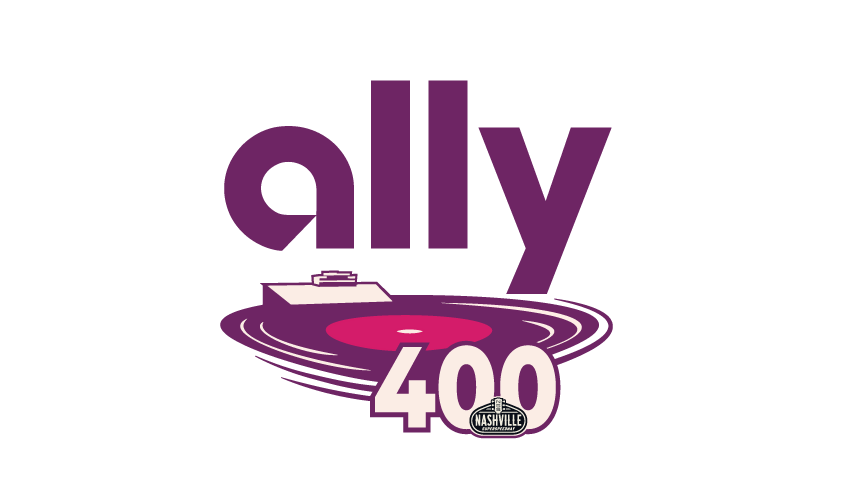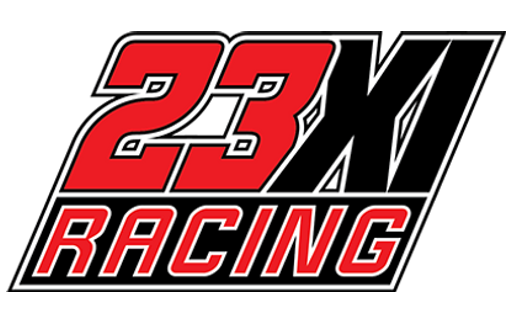KEVIN HARVICK
Nashville Advance
No. 4 Busch Light Peach Ford Mustang for Stewart-Haas Racing
Event Overview
● Event: Ally 400 (Round 17 of 36)
● Time/Date: 7 p.m. EDT on Sunday, June 25
● Location: Nashville (Tenn.) Superspeedway
● Layout: 1.333-mile, concrete oval
● Laps/Miles: 300 laps/399.9 miles
● Stage Lengths: Stages 1: 90 laps / Stage 2: 95 laps / Final Stage: 115 laps
● TV/Radio: NBC / PRN / SiriusXM NASCAR Radio
Notes of Interest
● Kevin Harvick will be peach perfect this weekend in Music City. The 2014 NASCAR Cup Series champion will drive the No. 4 Busch Light Peach Ford Mustang for Stewart-Haas Racing in Sunday’s Ally 400 at Nashville (Tenn.) Superspeedway. Busch Light Peach is a crisp, refreshing, peach-flavored lager with a touch of sweet on the front end and a clear, beer finish on the back end. It is available for a limited time only in 12-, 24- and 30-packs nationwide.
● Harvick comes into Nashville riding a wave of consistency with five straight finishes of 11th or better, a run highlighted by a second-place drive May 14 at Darlington (S.C.) Raceway.
● Consistency has been a hallmark of Harvick’s career, and Nashville is yet another example of how he is a top-10 stalwart. In his two NASCAR Cup Series starts at the track, Harvick has finished fifth and 10th, respectively, to earn an average finish of 7.5. The result is emblematic of Harvick’s overall record at tracks that are between a mile and 1.49 miles in length, as he has an average finish of 11.9 in a career that dates back to his Cup Series debut on Feb. 26, 2001 at the 1.017-mile North Carolina Speedway in Rockingham where Harvick finished a respectable 14th.
● Prior to the inaugural Ally 400 at Nashville in 2021, 10 years had passed since NASCAR last competed at the 1.333-mile, concrete oval. It was a NASCAR Xfinity Series race on July 23, 2011 and it was won by Carl Edwards. The NASCAR Cup Series had never competed at the track until the 2021 Ally 400, but Cup teams tested there extensively back in the day when it was fashionable to race on Sunday, test somewhere on Tuesday and Wednesday, and then fly to the next Cup race on Thursday. Harvick, now in his 23rd year of Cup Series competition, has logged more laps in a Cup car at Nashville than any of his Cup Series brethren despite the track never hosting a Cup race until 2021.
● In addition to testing a lot at Nashville, Harvick also raced extensively at the track, performing incredibly well. In four career Xfinity Series starts, Harvick has two wins – April 15, 2006 and April 3, 2010. He finished third on June 10, 2006 and recorded his worst finish, seventh, in his first Xfinity Series race at Nashville on April 14, 2001. It all gave Harvick an average finish of third. He also had a lap completion rate of 100 percent, running all 900 laps available to him, and he led 123 of those laps.
● Harvick’s lone NASCAR Truck Series start at Nashville came on April 2, 2010 when he finished second to Kyle Busch.
● In all of Harvick’s starts at Nashville – a total of seven – he has never finished outside the top-10. In fact, all but two of those finishes have been in the top-five. He finished seventh in his first Xfinity Series start at the track on April 14, 2001 and 10th in last year’s NASCAR Cup Series race. To break it down even further, Harvick has three top-twos, four top-threes and five top-fives, the most recent of which came in the inaugural Ally 400 when he finished fifth.
Kevin Harvick, Driver of the No. 4 Busch Light Peach Ford Mustang
Last year when you competed at Nashville, you said after the race that you had found some things regarding your car’s setup that proved to be a turning point in your season, and it seemed to lay the groundwork for better performances that ultimately showed up via wins at Michigan International Speedway in Brooklyn and Richmond (Va.) Raceway. What was it that you learned?
“For us, it was really just a turning point in thought processes and (chassis) setups and kind of validating the things that we knew we could do with the car, but it just took different approaches to make the car do those types of things. From that point on in the season, we were really able to be competitive. It just took a little bit to get everything going, but it was definitely the turning point in the season, for sure.”
Those back-to-back victories last year ended a winless drought. Did you feel that those wins were coming, especially after what you learned at Nashville?
“We really thought after we went to Nashville that we had kind of righted the ship. The beginning of the year was rough – just a lot of concepts and things that didn’t really pay off or work out. But when we went to Nashville, we had a practice session, we tried some things, and we ran really well in the race. That’s really when our season took a turn in the right direction, and we had a lot more confidence in the things that we were doing. So as we went week to week, we kept getting a little bit better because our concepts and things were really in the direction that we needed to be headed. We felt like we gave a couple away before we won the first couple of races, and I think as we got to the end of the year, we had some terrible luck and got knocked out of the playoffs, but it felt like we were in contention to win a few of the races over the last 10. On days when you had the opportunity to win, you needed to take advantage of them.”
Prior to the inaugural NASCAR Cup Series race at Nashville in 2021, you last competed there in 2010 during a NASCAR Xfinity Series race. What were your expectations when you rolled back into the track after an 11-year absence?
“I didn’t ever go to Nashville without the expectation of winning. It was one of our best racetracks throughout the years and we’ve always had good success there and always enjoyed the racetrack itself. I’m glad we’re back there in Cup. That facility was built to have a Cup date. I’m excited to be there because we have just a ton of fans.”
In addition to Xfinity Series racing at Nashville, that venue was the go-to track back when you had unlimited testing. Outside of the Xfinity Series, how many testing miles do you think you have at Nashville?
“Not many in the last little bit, but there was a period of time that we spent a lot of time at Nashville. We developed a lot of the coil binding in the front and rear springs there and at Milwaukee. When Nashville was built, I actually was part of the very first tire test – the first time that anybody was on the racetrack. Obviously, I’ve had a little bit of a layoff there, but from the very first moment I’ve been a part of that racetrack.”
Talk about those days of unlimited testing, where after a three-day race weekend you’d go test for two or three days somewhere, oftentimes at Nashville.
“Really, we can go back to 2000. I did all the testing for Dale Earnhardt as we went through the year. So, we would go race and then we would go to a racetrack, whatever racetrack that would be, and I also did my own testing. We probably did four or five tests – I think at that point they could only do seven tests in the Cup Series – and then I had all my tests that you could do in the Xfinity Series. But you could also go to any racetrack that wasn’t on the schedule, and at that particular point, Kentucky wasn’t on the schedule, so we spent a lot of time at Kentucky developing stuff for Dale and the Cup program. But for the most part, we did, midweek, probably 20-25 tests a year as we went through the season, and most of them would be two-day tests. And that’s what you did. You were never home. You tested all the time. When you had a problem, you just went somewhere and tested. Whether it be Greenville-Pickens or Caraway or VIR, Milwaukee, it didn’t matter, you could go to any racetrack if it wasn’t on the schedule. Through the years they just changed that because we would spend so much time at the racetrack. We would test on different brands of tires and different series of cars, and we would do whatever it took. But, for the most part, you probably spent 20-25 two-day tests away from what you did on those three-day weekends.”
When you returned to Nashville in 2021, was the track still the same as you remembered it, or had it changed some?
“The track really hadn’t changed. I think a couple of the bumps were a little bit worse than probably what they were before, but nothing drastic. I think the stuff they sprayed on the racetrack added a little bit of grip to the higher lanes in practice, and then for the race it was really back down to the bottom and more traditional like it had been before.”
You were one of the handful of drivers who had prior experience at Nashville. Did that help when you returned to the track, or had the march of time and technology made it an even playing field for everyone?
“I’d spent a fair amount of time there, so just having that general picture in your mind of how it raced and the things that you did and how it went was definitely good to have, and it kind of took away some of the questions you might have at a place you hadn’t been to ever before.”
Nashville is concrete, but does it race like its fellow concrete tracks – Bristol (Tenn.) Motor Speedway and Dover (Del.) Motor Speedway?
“Bristol and Dover are fairly similar as far as the way you drive them, and the feel and the speed. Nashville, it is concrete and it does take things differently, but it’s much flatter, and has a much different pace to the car compared to those two places with all the banking in the corners. Nashville is a very unique track because it’s flat with wide corners, and with the rubber building up on the track and the resin going down, it kind of evolves as the weekend goes.”
No. 4 Busch Light Peach Team Roster
Primary Team Members
Driver: Kevin Harvick
Hometown: Bakersfield, California
Crew Chief: Rodney Childers
Hometown: Mooresville, North Carolina
Car Chief: Robert “Cheddar” Smith
Hometown: Whitewater, Wisconsin
Engineer: Stephen Doran
Hometown: Butler, Pennsylvania
Engineer: Dax Gerringer
Hometown: Gibsonville, North Carolina
Spotter: Tim Fedewa
Hometown: Holt, Michigan
Over-The-Wall Members
Front Tire Changer: Daniel Coffey
Hometown: Granite Falls, North Carolina
Rear Tire Changer: Daniel Smith
Hometown: Concord, North Carolina
Tire Carrier: Jeremy Howard
Hometown: Delhart, Texas
Jack Man: Brandon Banks
Hometown: High Point, North Carolina
Fuel Man: Evan Marchal
Hometown: Westfield, Indiana
Road Crew Members
Mechanic: Tyler Trosper
Hometown: Mooresville, North Carolina
Mechanic: Nick DeFazio
Hometown: Orange, California
Tire Specialist: Jamie Turski
Hometown: Trumbull, Connecticut
Engine Tuner: Robert Brandt
Hometown: Mobile, Alabama
Transporter Co-Driver: Rick Hodges
Hometown: Raleigh, North Carolina
Transporter Co-Driver: Stephen Mitchell
Hometown: Woodville, Ohio







